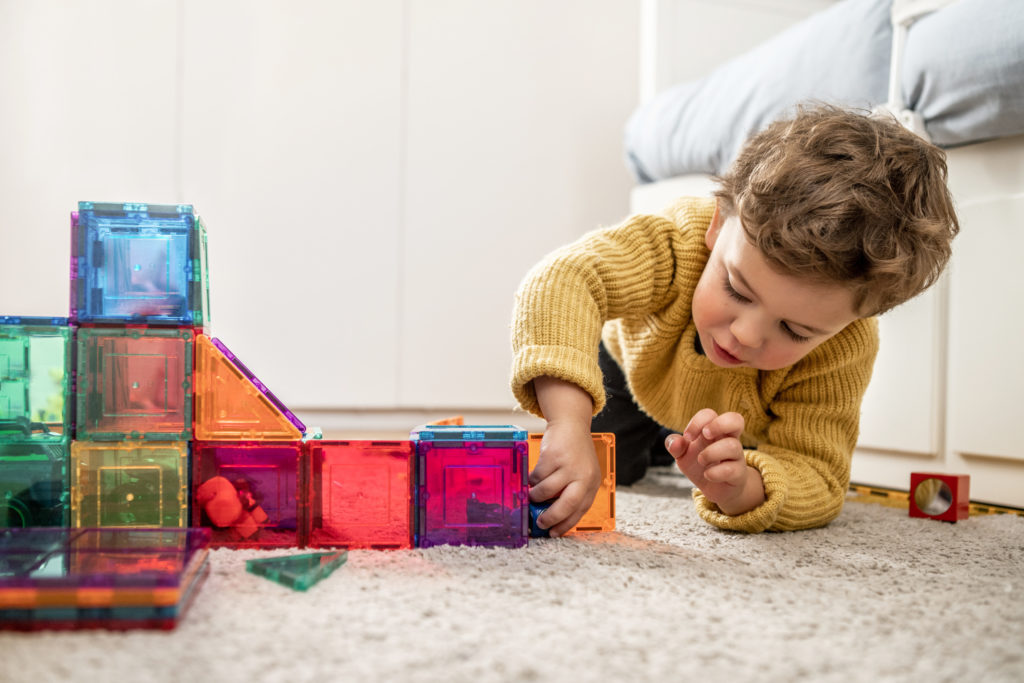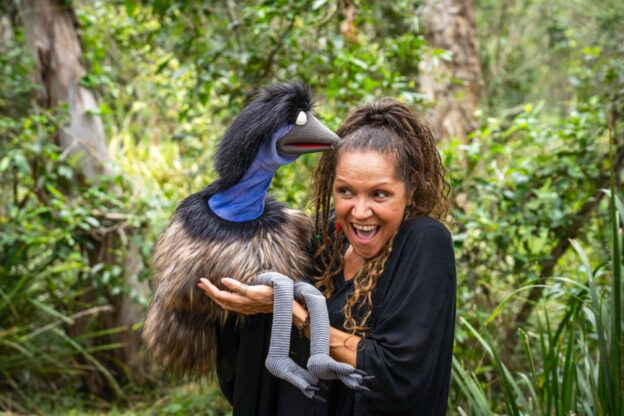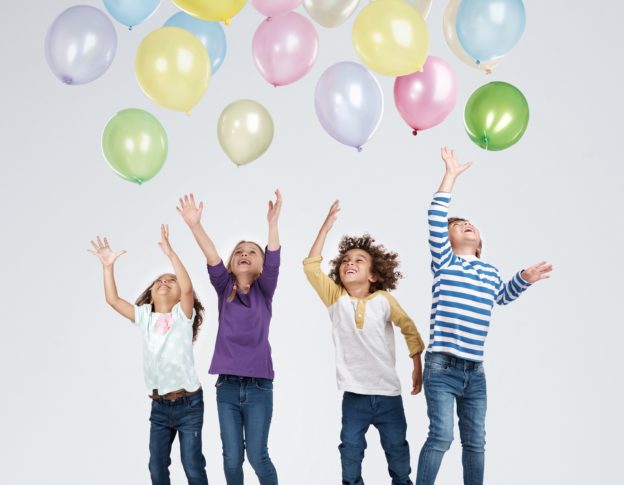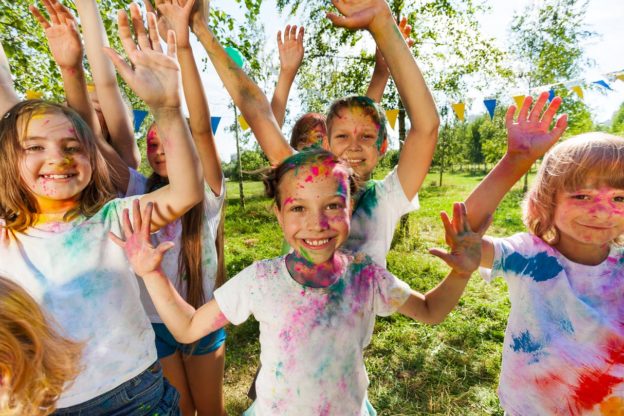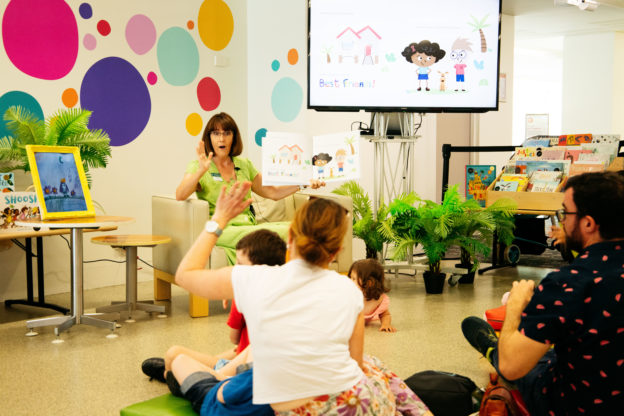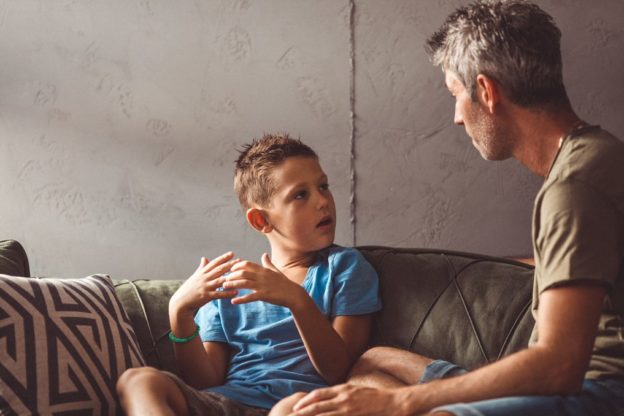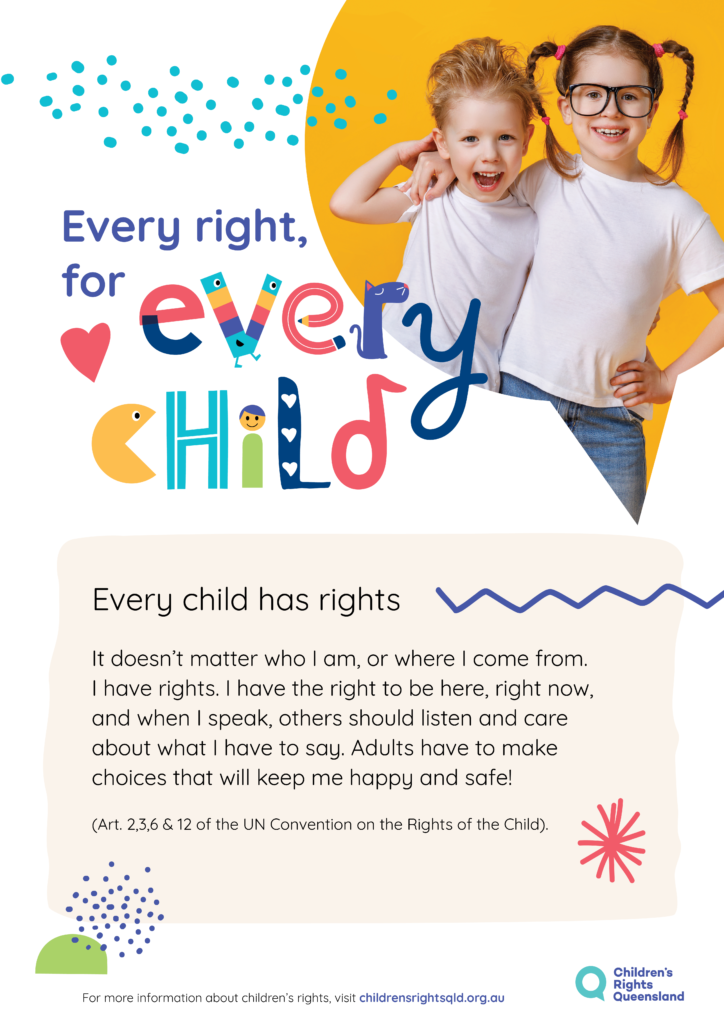Work, rest and play.
As adults, the idea of leisure time is something we hold dear. It forms the building blocks of our work-life balance and promotes the idea that we should do things to make us happy.
For children, the right to play, rest and engage is the first step on the path to learning success. It encourages broader social interactions, awareness of physical activity, and introduces each child to hobbies that can stimulate creativity, cognitive growth and academic development in areas such as literacy and numeracy.
As we learn more and more about how play can affect a child’s growth and development, we are now seeing a renewed focus on developmental play in early learning centres and schools and a move away from early school attendance. Be it longer breaks, play focussed activities or the inclusion of child-led learning, the right to play, rest and engage is now front and centre in education in many parts of the world.
With Children’s Week 2021 looking at how children can choose their own friends and safely connect with others, let’s have a look at how each child’s right to play lets children the world over connect with new friends as they learn and grow together.
What is Article 31 and how does it benefit children?
Article 31 of the UNCRC recognises the right of the child to:
“…rest and leisure, to engage in play and recreational activities appropriate to the age of the child and to participate freely in cultural life and the arts”.
Simply put, children have the right to play.
And while this may seem obvious at first, many children across the globe are unable to play safely and miss out on a crucial part of their development. Leisure time and developmental play allow children to engage with one another through sports, the arts, cultural learnings and many other forms of self-exploration and self-expression.
Article 31 promotes the idea of children having time to themselves – something we might closely associate with being an adult. Having time to play alone gives children time to build their imagination, explore their interests and develop their skills in different areas.
Ultimately, play promotes new ways of thinking, builds self-esteem and helps children understand their own emotions and the emotions of others. Through social and individual play experiences, children are introduced to greater learning that supports what they learn in the classroom and at home.
So how exactly does this important right promote learning and growth?
The vital role of play in childhood development
Play based learning is now commonly used throughout the world to promote healthy childhood development. Whether it be at home or at school, there is always something to be gained by letting children explore what brings them joy and excitement.
So how does play support each child’s development?
Physical development
From climbing trees and digging up the sandpit, to kicking the footy or skipping over a rope, physical activity is essential in supporting each child’s sense of wellbeing, physical growth and overall health. And these skills don’t just stop once inside, these important physical skills are important for each child’s independence and how they take care of themselves. This means more independence when dressing themselves, eating and drinking or going to the bathroom – all an important part of growing up.
Social and emotional development
When given the opportunity, children will let their imagination run wild. And in doing so, they are able to learn how to express themselves and come together with others to create and explore new ideas and concepts. With simple activities like role playing, dress-ups and other imaginative play, children can learn how to:
- work with other children
- develop confidence via success and challenges
- understand and control their emotions
- develop empathy and understand fairness
- understand conflict resolution
Cognitive development
Play requires problem solving and active cognitive ability. When playing by themselves or in a group, children are constantly developing their memory and thinking skills. As they develop, these skills allow them to:
- use their imagination
- recognise shapes, colours, letters and numbers
- build stamina, concentration and resilience
Literacy and numeracy development
With all of the social interactions and cognitive growth that occurs during play, it comes as no surprise that ultimately, children’s literacy and numeracy also develops at great rates during this time as well. With the opportunity to talk, paint, scribble, listen and create, children have the opportunity to:
- expand their vocabulary
- improve their active listening
- draw connections between objects and their meanings
- learn about stories and plotlines
- find connections between letters, numbers and symbols
Missing out on these important skills because children are pushed into early academics or not being given the time and access to play means many children may miss out on vital skills that they gain through playing with others.
What does play based education look like when it’s successfully implemented?
Finland’s story
Finland has long been seen as the benchmark amongst Europe’s comprehensive schooling systems. With consistently high literacy and numeracy results, it ranks among the world’s highest education systems. Amazingly, students in Finland don’t start formal schooling until the age of seven.
So what do the teachers and children focus on while learning in these developmental years?
Creative play.
This relaxed approach, zones in on physical and imaginative activity and highlights the importance of creativity for each child’s overall development. This means at least 90 minutes a day of physical activity, in addition to both free play and structured developmental play that is assessed just as it would be numeracy or literacy.
With activities that include creating puppet plays, dress-ups, arts and crafts and problem solving through simple construction activities, each child has a chance to see what excites and entertains them.
So far, this has proven to be vital in how students adapt socially and emotionally towards their surroundings. Students learn to look after themselves, enhance their motor skills and connect with other students. Ultimately, this has led to Finland consistently having some of the happiest, least stressed children in Europe. And unsurprisingly, these results are backed up in literacy and numeracy scores, with Finland consistently ranking at the top of the OECD for these curriculum areas.

Respect and uphold each child’s right to play
The way children learn at home and school can be incredibly different. Every family, school or learning centre has access to different resources and means to help each child learn through play. Some of the things we can all do to try and give every child the greatest shot at being their best creative selves include:
Early Childhood Centres and Schools
Educators at all levels of schooling have the opportunity to provide their students with the resources and activities to explore their own creativity and free time.
For those who work in early childhood centres, this might look like structured indoor or outdoor games, easy access to simple and fun resources like cardboard boxes, arts supplies, dress-ups and much more, with consistent times for these activities to occur. Having time for free play and allowing children to choose their own play activities is important as well.
Once children start formal schooling, an emphasis on learning through play, using games manipulatives and peer based learning should be used in the first years of schooling to help make the transition from play based learning to more formal academics.
For older children, ample recess and lunch time is critical to encourage greater social and emotional development through person to person interaction. It also plays a critical role in providing a break from the strain of formal studies throughout the day.
Home
At home, developing strong creative and play-based skills from an early age occupies a fundamental role in a child’s learning. By doing a few simple things, you can help each child develop a stronger sense of individuality, empathy and an understanding of the world around them.
If choosing skill based classes for children, such as sports, dance or instruments, look for classes that have a play based focus with an emphasis on having fun and enjoyment over developing skills at a young age.
Some of the ways you can encourage this include:
- researching developmental play activities
- creating a safe and stimulating environment for play time
- playing with your child and encouraging children to play alone
- giving children opportunities to play with other children outdoors
- Giving children opportunities to join their peers in play through playgroups and childcare
- observing and noting what your child enjoys during play
- sharing this information with their educators
Playgroups and parenting groups
For many, it might not be possible to access the required resources or support to help you get the most of developmental play. This is where playgroups and parents’ groups come in.
Having a safe and fun play space for children to attend is an important part of their social and physical growth. They allow parents to introduce their children to a wide range of activities that are simply not available at home, while also introducing children to new friends and play buddies that wouldn’t otherwise meet.
And for parents and caregivers, the chance to meet others with similar aged children can create long lasting connections that maintain stability in the development of each child. This may include extra catch-ups, play-dates and other learning opportunities for both parents and children. And as a wonderful upside, parents have more opportunities to learn from each other and enhance the way they can support their own children in their development.
Learn more about playgroup (Link to Playgroup Queensland website).
Playtime should be fun
At the end of the day, finding a better balance between work and play makes us happier.
Given the right environment and activities, children can continue to learn by simply hanging out with friends, taking on fun and new challenges and absorbing the world around them.
And although our current situation in Australia and the rest of the world has limited the time children can interact with one another, this doesn’t mean we should put it to the side and forget about it. There’s always the potential to sneak in some rest and play.
For older children, this could mean increased responsibilities around the house, including cooking and cleaning. For younger kids, setting routines of small arts and crafts activities, a bit of sports in the backyard, or going for a walk to a local green space could make all the difference during these times.
And if you’re looking for a great community-based opportunity to celebrate all things play, Children’s Week 2021 is on from 23-31 October 2021.
You can get involved with free open days, special events, virtual spaces and online based activities, or consider hosting your own event. Visit our Children’s Week webpage to find out more here.

REFERENCES
https://childrensrightsqld.org.au/childrens-week/
https://childrensrightsqld.org.au/right-to-join-groups-and-meet-together/
http://thespoke.earlychildhoodaustralia.org.au/play-based-learning/
https://www.firstfiveyears.org.au/early-learning/the-value-of-play-to-literacy-and-numeracy
https://gpseducation.oecd.org/CountryProfile?primaryCountry=FIN&treshold=10&topic=PI
https://www.edutopia.org/article/research-tested-benefits-breaks
https://www.naeyc.org/our-work/families/support-learning-with-play
https://www.playgroupnsw.org.au/ParentResources/EarlyChildhoodDevelopment/5-benefits-playgroup
https://www.understandingboys.com.au/bringing-up-boys-in-a-time-of-lockdown/

